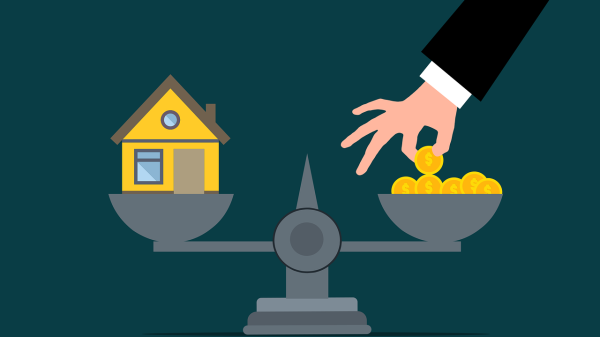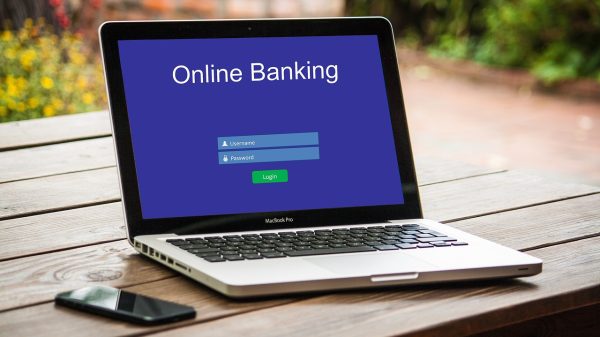The first-time home buyer can face numerous obstacles when trying to buy a home for the first time. The obstacles can be in the form of a low credit score or no credit score, lack of funds for the down payment, inability to qualify for a mortgage, etc. An additional reason to maintain a good credit score. As with everything else, there is also a solution to this problem. Namely, you should get familiar with the rent-to-own lease option.
What is a rent-to-own home?
Rent to own home is a process in which the renter can purchase the home at a previously determined price, before or at the expiration date. The process of rent to own can also be called an option to buy or a lease option. The interesting thing is that this option is not very popular among renters and home buyers, even though it is primarily intended for buyers who can not otherwise afford a home.
In simple words, rent to own a home can be an attractive option since you pay monthly rent as you would otherwise do with classic renting of a property. The difference is that you will pay higher monthly rent. Portion of the rent is accumulated in the form of rent credit. This rent credit, later on, is used towards the purchase of the home. Depending on the rent-to-own lease agreement, there might be some additional fee.
How rent to own works?
The property is rented following the basic home lease. If the tenant agrees to pay extra money each month, then he/she will have the option to purchase the home. The purchase can take place later (usually after three to five years) at a previously determined price.
For instance: the current value of the home is $220,000. Both landlord and tenant agree that the tenant will have the right to purchase the home in four years for $260,000. Noteworthy mentioning is that the tenant has the right but not the obligation to buy the home. Coming back to the example, the fee for the purchase option is around 2% of the purchase price. So 2% of $260,000 equals $5,200. Moreover, the tenant makes $150 extra payments each month. Thus, at the end of the four-year term, the tenant has put up $12,400 towards the purchase price. The accumulated amount that goes towards the purchase price depends on the option fee and the amount of extra fee paid each month.
At the end of the agreed period, the thenant decides whether or not then he/she will exercise the right to buy the home. The accumulated credit ($12,400 in the example above) can be used for a down payment.
There can be some differences regarding the process of rent to own from one agreement to another. But in general rent to own process is as follows:
- The renter is reach a decision and agrees to lease the property for a predefined period. The predefined period is usually one to three years.
- The renter should pay an up-front fee, known as the option fee. Usually, this fee can be up to 5% of the agreed purchase price for the home. Noteworthy mentioning is that this up-front fee, in most cases, is nonrefundable, though its portion or the entire amount can be considered as a down payment.
- There is also the possibility that the renter could pay a higher monthly rent. As with the fee, a portion of the rent will be directed toward the down payment fund.
- Home’s purchasing price is fixed after the agreement is signed.
- The renter can buy the home before or on the predefined expiration date of the lease agreement.
Advantages of rent to own
Aside from the fact that it is not a very popular option for renters, rent to own option has some advantages for potential home buyers.
Fixing the purchase price
With rent to own, you are fixing the purchase price at the property’s current market value. This value is appraised when you sign the lease agreement. Thus, this characteristic can also be considered to be both, advantage and disadvantage for buyers. It would be beneficial to lease the property in times of depressed housing market (an example would be the last financial crisis). By leasing a home at a depressed value, you stand to gain much more in the long run. Namely, you will lock in the price of your home, whereas in the future, the value is expected to increase as the economy recovers.
The drawback, though, is that you might find yourself signing a rent-to-own agreement in times when the home market is at maturity. This means that you will fix a price that can be higher than the property’s expected value.
A possibility to own a home
A rent-to-own agreement is offering more options for both sellers and buyers. Namely, people who can not afford to buy a home have the possibility to do so through the lease agreement. On the other hand, homeowners can now sell their property even to buyers who can not afford the down payment.
Flexibility
You have increased flexibility when buying your home. Namely, with the standard purchase of a home, you can not change your mind. If you do so, you have to find a buyer for your property. With rent to own agreement, you are not obliged to buy the property. You should be aware that you will lose your rent credit.
Time to accumulate savings
Not being obliged to have a down payment on your property can positively impact your finances and/or savings. If you cannot make the down payment, you will not be able to buy the property. But with rent to own agreement, you do not need a down payment, making it easier for you to buy a home. In addition, since you do not have a massive outflow of capital, you can save money in the long run.
Improve your credit score
In case you have a low credit score, the rent-to-buy option can help you. Namely, making on-time payments for rent will increase your credit score.
Disadvantages of rent to own
Failure to understand and take into account the drawbacks of a rent-to-own lease might harm your home-buying plans in the future. For this reason, before making any decision, get acquainted with the problems that could arise from rent to own agreement.
Costly form of home purchase
One of the disadvantages of rent-to-own agreement is the cost for its tenants, i.e., potential home buyers. Namely, the cost for renting a place with a purchase option will have a higher price. Landlords will charge you more for this form of lease. The charge can be in the form of an additional charge added to your rent, or you could pay a separate fee. In addition, it can also be embedded in a higher monthly rent. Keep in mind that part of the monthly rent goes to paying for the home. If the renter decides not to purchase the property, the landlord (owner) forfeits the additional charge.
Homeownership is not definite.
One disadvantage of rent to own agreement is that it doesn’t guarantee homeownership at the end of the deal. This largely depends on the agreement terms. Thus, the renter should be careful when signing the document. Make sure that you have fully understood all terms.
No mortgage – no ownership
The renter would probably need to be approved for a mortgage to buy the property at the end of the agreement. But the thing is that you do not have a guarantee by the bank that you will be approved for the mortgage. So if the renter cannot obtain a mortgage, he/she will not be able to buy the home, which means that signing the rent-to-own agreement is not a final guarantee for homeownership. In addition, if you do not qualify for a mortgage, the landlord will keep the tenant’s rent credit.
Losing the rent credit
When signing the rent-to-own agreement, the tenant should pay an extra amount to the landlords (rent plus the agreed monthly amount). Consequently, if you cannot purchase the property for whatever reason, you stand to lose the rent credit you have paid. So instead of renting a smaller home saving money, the renter could end up paying higher rent without owning a home in the end.
Decrease in property value
Because the purchase price is predetermined and fixed with the rent-to-own contract, you can end up buying a more expensive home compared to the current market value. Namely, the value of the home can change during the agreement period. Thus, the home’s value can decrease, and it will be cheaper to buy the home at the market value and not at the agreed price. For instance, according to the agreement, you can purchase the home for $180,000 after five years. But the market value of the home after five years has decreased down to $145,000. In case you decide not to execute the contract term, you will lose the accumulated rent credit. However, keep in mind that the market value of the home can also increase, for instance, up to $200,000. So you also can gain higher value for a lower price.
Cancellation of agreement terms
The major disadvantage of rent to own a home is the contract terms. Namely, one late payment can result in the cancellation of the entire agreement. In addition, if the home repairs obligation is not clearly defined, the tenant can lose the contract if some repairs are not finished. So tenant should be careful about the terms with which the landlord can void the contract.
Issues to consider before the rent to buy agreement is signed.
Above all, it is wise to ask for legal advice regarding the rent-to-own lease agreement. Don’t sign any agreement until you have understood the terms (especially the details) of the agreement. If you don’t feel comfortable with some of the terms, you either ask for those terms to be changed or look for new property. That being said, there are a couple of issues you should consider before signing a rent-to-own agreement. Of course, the issues should be considered from buyers and sellers point of view.
Issues to be considered as a buyer of a rent to own home option:
- Under which circumstances the tenant is losing the right to purchase the property. When the agreement is canceled. According to some agreements, being late on rent once could mean cancellation of the agreement. In this case, when the contract is no longer valid, the landlord can forfeit the extra charge.
- The consequences in case of late rent. Make sure that you have taken into consideration the possibility of a short term problems with finances.
- The landlord might perform a credit and background check. The purpose is to see whether the tenant will be able to purchase the property.
- Make sure that you can qualify for a mortgage.
- The property might be subject to foreclosure, since you do not own it yet, the landlord might lose the property. Make sure that the property is not going to be subject to foreclosure.
- This is a bit tricky, but try to find out the expectations about the future home prices. This will help decide whether or not you will gain or lose the property’s value when you buy it. Don’t forget that the purchase price is locked with the rent-to-own agreement.
- Are there any title problems associated with the property you want to buy?
- Always be aware of rent-to-own scams. Do not rush into things, make sure that you are communicating with a reputable person or agent, or adviser.
- The agreement should clearly state the responsibilities associated with the home. Ensure that the lease option states who is responsible for the repairs and maintenance associated with the home. In addition, the types of modifications the tenant is allowed to make should also be stated.
Issues to be considered as a seller of a rent to own home option:
- There is always the possibility that your renter will not buy the property. Meaning that the process of selling your home will start all over again. The good thing, though, is that you get to keep the extra money.
- You get the money in installments instead of a lump sum. Thus, you may not be able to buy another property immediately.
- Since you lock in the price, you risk losing money if the home prices increase.
- On the other hand, if home prices decrease, then the renter might decide not to buy the home from you. So now you need to sell your home at lower prices.
- The agreement should define the responsibilities regarding the repairs and maintenance of the home.
Before signing any rent-to-own home agreement, both landlords and tenants (seller and buyer) should ensure that they have fully understood the conditions under which the transaction will occur. In addition, you should be acquainted with the benefits and pitfalls of rent to own home. Keep in mind that this form of agreement can be subject to different problems since it doesn’t have any standardized agreement.







